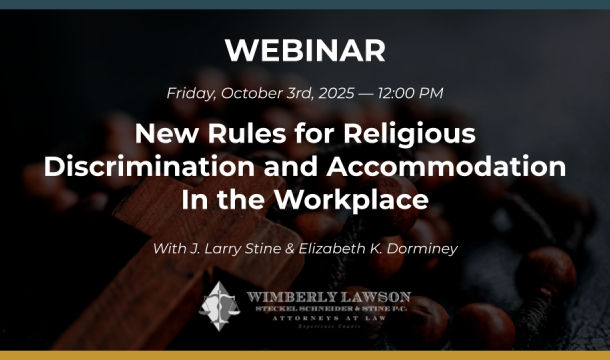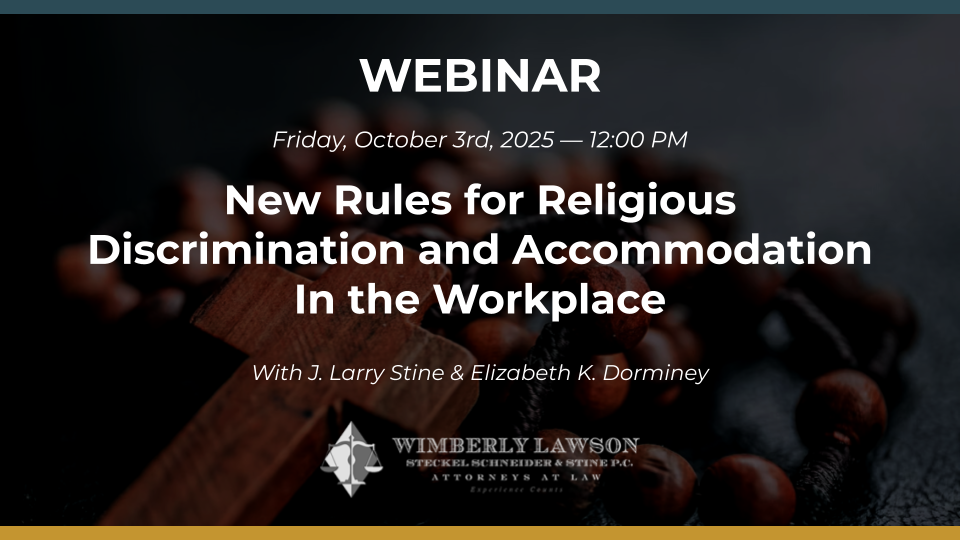TRANSGENDER BATHROOM POLICIES
Toilets are a hot news item these days, perhaps for the first time since the 1960s. The City of Charlotte, North Carolina adopted a municipal regulation allowing individuals to exercise free choice in choosing men's or women's restrooms: the State of North Carolina gained notoriety when it adopted a statewide ban on such rules. While many argue that this is a sign of social progress, or of moral decay, it's undeniably an issue that employers must address in the workplace.
The EEOC takes the position that Title VII of the Civil Rights Act of 1964 prohibits discrimination based on a person's gender identity or sexual orientation, just as it prohibits discrimination based on a person's race, sex, or national origin. They aggressively litigate that position throughout the United States. In 2015 the agency processed 1412 claims of gender-identity discrimination, and secured over $3 million in monetary relief. The EEOC's position reflects its interpretation of Federal law, which trumps State and local laws: any employer subject to Title VII (i.e., with 15 or more employees) ignores the agency's position at their peril. The EEOC's "Brochure on Preventing Employment Discrimination Against Lesbian, Gay, Bisexual, or Transgender Employees," available at http://www.eeoc.gov/eeoc/publications/brochure-gender_stereotyping.cfm.
Proponents of restroom free choice point out that nearly all of us have facilities open to all or any gender in our homes, and experience few problems. Large numbers of small businesses already have facilities that are shared by all workers. Problems may be more abstract than concrete: it's the idea of a man entering the women's restroom that causes alarm, more than actual sightings, which are rare. (And who's to say they haven't unknowingly shared facilities with trans people already, without incident?)
Many restaurants and other places of public accommodation have single-stall facilities with lockable doors and no external designation. That's certainly an option, but may not be practical for an existing business, particularly one with a large workforce. Perhaps a Kroger store in Athens, Georgia can provide some inspiration. In addition to their existing separate men's and women's restrooms, they have a "third door" bearing the following notice:
We have a unisex bathroom because sometimes gender specific toilets put others into uncomfortable situations. And since we have a lot of our friends coming to see us, we want to provide a place for our friends who are:
-
Dads with daughters
-
Moms with sons
-
Parents with disabled children
-
Those in the LGBTQ community
-
Adults with aging parents who may be mentally or physically disabled
Thank you for helping us to provide a safe environment for everyone!
Potty parity is a problem that can be solved. It's well worth a little time and effort in the HR department to come up with a solution that will satisfy your employees, the community, and the EEOC.
Related Content
Get Email Updates
Recent Content

Trump Nominates Appointments to NLRB and EEOC but Policy Changes Likely to Be Delayed

DOL Launches Self-Audit Programs Designed to Help Employers Improve Compliance

DOL Must Release EEO-1 Reports to the Public under Open Records Laws

Current Advice on Active-Shooter Situations

New Policy for Federal Workers and Religious Expressions

